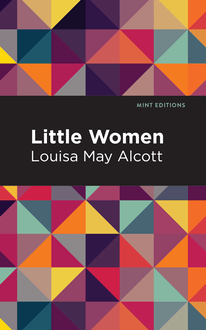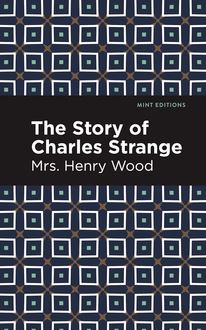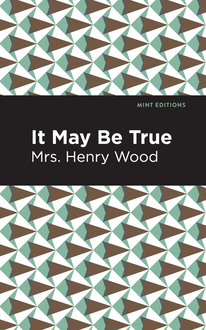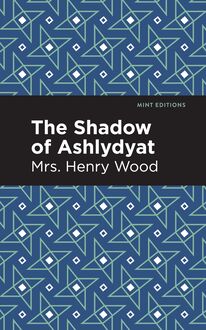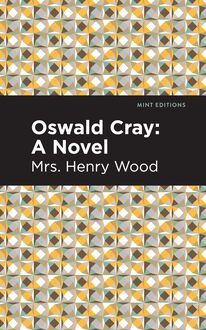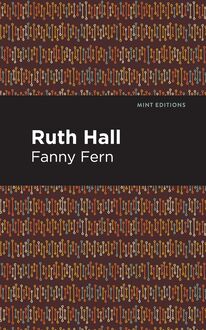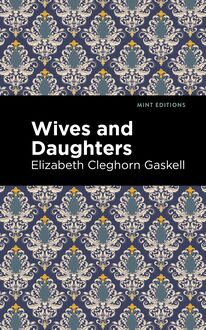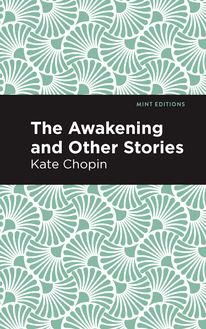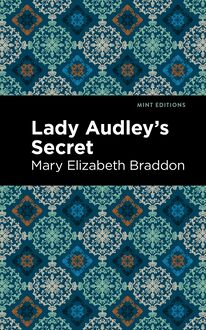-
 Univers
Univers
-
 Ebooks
Ebooks
-
 Livres audio
Livres audio
-
 Presse
Presse
-
 Podcasts
Podcasts
-
 BD
BD
-
 Documents
Documents
-
- Cours
- Révisions
- Ressources pédagogiques
- Sciences de l’éducation
- Manuels scolaires
- Langues
- Travaux de classe
- Annales de BEP
- Etudes supérieures
- Maternelle et primaire
- Fiches de lecture
- Orientation scolaire
- Méthodologie
- Corrigés de devoir
- Annales d’examens et concours
- Annales du bac
- Annales du brevet
- Rapports de stage
La lecture à portée de main
Vous pourrez modifier la taille du texte de cet ouvrage
Découvre YouScribe en t'inscrivant gratuitement
Je m'inscrisDécouvre YouScribe en t'inscrivant gratuitement
Je m'inscrisEn savoir plus
Vous pourrez modifier la taille du texte de cet ouvrage
En savoir plus

Description
Surrounded by mountains, valleys, and forests, Ashliegh, England is a picturesque village, and seemingly the perfect place to live. However, still mourning the death of her father and navigating the sometimes-suffocating love of her mother, Amy Neville longs for a change of scenery. After being encouraged and supported by a family friend, Mrs. Elrington, Amy is finally given an opportunity to grow when she is offered a governess position for a family in another village. When she is finally able to convince her mother to allow her to move away, Amy is excited and nervous to start her journey into her professional life. However, the Linchmore family is hardly inclined to make anything easier for her. Tasked with caring for and educating children that want nothing to do with her, Amy struggles to be a positive influence in the children’s life. Meanwhile, Amy must attempt to keep the peace between she and Mrs. Linchmore after getting caught in the middle of drama nearly a decade in the making between Mrs. Linchmore and Mrs. Elrington. First published in 1865, It May Be True by Mrs. Henry Wood is an obscure and sentimental work of historical fiction filled with secret and drama. Featuring stunning detail of characters, customs, and settings, Wood portrays an intimate perspective of the culture and social norms of the class division in 19th century England. This edition of It May Be True by Mrs. Henry Wood now features a striking new cover design and is printed in a font that is both modern and readable. With these accommodations, this edition of It May Be True crafts an accessible and pleasant reading experience for modern audiences while restoring the original sentiment and drama of Mrs. Henry Wood’s work.
Sujets
Informations
| Publié par | Mint Editions |
| Date de parution | 14 mai 2021 |
| Nombre de lectures | 0 |
| EAN13 | 9781513286181 |
| Langue | English |
Informations légales : prix de location à la page 0,0500€. Cette information est donnée uniquement à titre indicatif conformément à la législation en vigueur.
Extrait
It May Be True
Mrs. Henry Wood
It May Be True was first published in 1865.
This edition published by Mint Editions 2021.
ISBN 9781513281162 | E-ISBN 9781513286181
Published by Mint Editions®
minteditionbooks.com
Publishing Director: Jennifer Newens
Design & Production: Rachel Lopez Metzger
Project Manager: Micaela Clark
Typesetting: Westchester Publishing Services
C ONTENTS V OLUME I I. A SHLEIGH II. A P ROUD L ADYE III. M ORE A BOUT B RAMPTON IV. T HE B OOK S HELVES V. V ISITORS A RRIVE VI. “G OOD G REY ” VII. A MY G OES FOR A W ALK VIII. T HE F LOWER IX. W HAT B ECAME OF THE F LOWER X. A P ASSING G LANCE XI. T HE M EETING IN THE S CHOOL - ROOM XII. T HE A CCIDENT XIII. T HE M YSTERIOUS L IGHT XIV. M EMORIES OF THE P AST XV. T HE G ALLERY W INDOW V OLUME II I. N EWS FROM H OME II. A F RIENDLY I NTERFERENCE III. T HE L ETTER IV. T HE I NTERVIEW V. D OUBTS AND F EARS VI. T HE W ARNING VII. M ISGIVINGS VIII. A D ARK N IGHT IX. G OING A WAY X. J ANE XI. T HE C ONSERVATORY XII. L OOKING FOR THE “B RADSHAW ” V OLUME III I. I S T HERE A F ATE IN IT ? II. F OR B ETTER , F OR W ORSE III. L ISTENING AT THE D OOR VI. T OO L ATE V. D EFEAT VI. A MY ’ S C OURAGE F AILS H ER VII. T HE F IRST D OUBT VIII. G OING FOR THE D OCTOR IX. S ERVING THE C URL X. D OWN B Y THE L AKE XI. R EPENTANCE XII. A F ADING F LOWER XIII. J ANE ’ S S TORY XIV. D ESPAIR ! XV. T HE L AST OF L ITTLE B ERTIE XVI. T HE C LOUDS C LEAR XVII. S UNSHINE
VOLUME I
I
A SHLEIGH
Had’st thou lived in days of old,
O, what wonders had been told
Of thy lively countenance,
And thy humid eyes that dance
In the midst of their own brightness,
In the very fane of lightness;
Over which thine eyebrows, leaning,
Picture out each lovely meaning;
In a dainty bend they lie
Like the streaks across the sky,
Or the feathers from a crow,
Fallen on a bed of snow.
—K EATS
The village of Ashleigh is situated in one of the most lovely and romantic of the English counties; where mountains, valleys, woods and forest trees appear to vie with each other in stately magnificence. The village is literally embosomed amongst the trees. Lofty elms, majestic oaks, and wide-spreading beech trees grow in and around it. On one side, as far as the eye can reach, are mountains covered with verdure, with all their varied and lovely tints of green. On the other side the view is partially obstructed by a mass of forest trees growing in clumps, or forming an arch overhead, through which nevertheless may be gained a peep of the distant sea, with its blue waves, and sometimes the white sails of a ship; or, on a clear day, even the small fishermen’s boats can be distinguished dotted here and there like small pearls.
Ashleigh has its country inn and ivy-mantled church, with the small house dignified as the Parsonage, close by. Other houses are sprinkled here and there down the green lanes, or along the road, shaded by its lofty elms, at the end of which, on a small eminence, stands the Manor or “Big House,” as the villagers call it.
It is a large, brick building, but with nothing grand or imposing about it; in fact, but for the lovely grounds and plantations on a small scale around, the clematis, jasmine and other beautiful creepers, too numerous to mention, trained up its walls, and hanging in luxuriant festoons about the porch, and the dark ivy which almost covers the roof, the whole of one side, and part of the front itself, it would be an ugly, unwieldy-looking edifice; as it was, everything appeared bright and gladsome.
Before you reach the village, a bridge crosses a small stream which flows from the hill-side, and after winding gracefully and silently through the midst, passes by the mill and being just seen like a long thin thread of silver in the distance, is lost in the rich meadows beyond.
It was the beautiful spring time of the year:—
“The delicate-footed May,
With its slight fingers full of leaves and flowers.”
The sun was just setting in all its regal splendour beneath the deep rich crimson sky, throwing long dim shadows from the stately trees which over-arched the road along which a young girl was slowly wending her way. Her figure was slight, yet her step—although she appeared very young—had none of the buoyancy or elasticity of youth. It was slow; almost mournful. But either the graceful figure or step itself had a certain dignified pride, neither stately, haughty, nor commanding; perhaps it combined all three. Her face was very lovely. Fair golden masses of hair waved under the broad straw hat she wore, while her eyes were shaded by long, dark silken lashes. She had a clear, high forehead, and a delicately fair complexion. Such was Amy Neville. She paused as she reached the bridge, and, leaning against the low masonry at the side, looked back. Nothing could be lovelier than the scene she gazed on. The sun, as we have said, was just setting, and the sea, distinctly seen from the bridge, looked like one large, broad mirror, its waves dashing here and there like glittering diamonds. Far off, touched by the last rays of the sun, the white cliffs stood out grandly, while birds chirped and warbled among the leafy branches; groups of merry, noisy children played in the village, under the shade of the elms, through which here and there long thin white wreaths of smoke curled gracefully and slowly upwards.
A cart, with its team of horses, roused Amy from her reverie, and she went into the lane where the hedge-rows were one mass of wild flowers. The delicate primrose, yellow cowslips, blue-bells, bryony, travellers’ joy, and a number of others, almost rivalling in their loveliness the painted, petted ones in our own cultivated parterres, grew here in wild luxuriance, and as Amy sauntered slowly on, she filled the basket she carried on her arm with their beauty and fragrance. As she came in sight of one of the houses before mentioned, a child of about ten years of age came flying down the narrow garden-walk to meet her. Throwing her arms round her neck she upset Amy’s basket of treasures, covering her dark hair with the lovely buds and blossoms. Leaving her to collect the scattered flowers, Amy passed into the cottage, her home.
“You are late, Amy,” said a voice, as she entered the little sitting room, “or otherwise I have wished to see you more than usual, and am impatient. Sarah has been eagerly watching the road ever since her return from her walk. Poor child! I fear she misses her young school companions.”
“I think I am rather later than usual, mamma, but old Mrs. Collins was more than usually talkative; so full of her ailments and griefs, I really was quite vexed with her at last, as if no one in the world suffers as she does. Then the evening was so lovely, I loitered at the bridge to watch the sun set; you can have no idea how beautiful it was; and the wild flowers in the lane, I could not resist gathering them,” and throwing her hat carelessly on the table, Amy seated herself on a low stool at her mother’s feet.
“And why have you wished to see me so much, and what makes you look so sad, dear mamma?” she asked, as Mrs. Neville laid her hand caressingly on the masses of golden hair.
Receiving no reply, she bent her eager, loving eyes on her mother’s face. There was a sad, almost painful expression overshadowing the eyes, and compressing the lips, and it was some time ere Mrs. Neville met her gaze, and then tears had gathered under the long eyelashes, though none rested on her cheek.
“I have been for a drive with Mrs. Elrington, Amy.”
Amy turned away her face; she dared not trust herself to meet those mournful eyes, expressing as they did all the grief she feared to encounter; so she turned away, lest she also should betray emotion which must be overcome, or be wanting in firmness to adhere to the plan she had formed, a plan she knew to be right, and therefore to be carried out; if the courage and resolution of which she had so boasted to Mrs. Elrington did not give way in the now wished for, yet half-dreaded conversation.
“And she mentioned the letter to you, mamma?” asked Amy.
“She did. And much more beside. She tried to talk me over; tried to make me give my consent to parting with you, my dear child.”
“And did you consent, dear mamma? Did Mrs. Elrington tell you how much I had set my heart upon going?”
“You wish to leave me, Amy?” asked Mrs. Neville reproachfully. “Think how lonely I should be. How I should miss the thousand kind things you do for me. And when I am sad, who will cheer me as you have done? I cannot part with you, my child. It is too hard a trial. I cannot bring myself to think of it!”
“But, mamma,” replied Amy, pausing to stifle her rising emotion. “You have Sarah, and she is full of fun and spirits, and always laughing and merry, or singing about the house. And then, dear old Hannah will, I know, do her best to fill my place, so that after a while you will scarcely miss my sober face, and I am sure it is what I ought to do, dear mamma, instead of remaining here in idleness, and seeing you daily deprived of all the many comforts you have been accustomed to; and think of the pleasure it would give me to know and feel I am working for you, my own dear mother;” and Amy drew her mother’s arm fondly round her neck.
“Slaving for me, Amy! A governess’s life is a life of slavery, though to you it may appear all sunshine. A path of thorns; no bed of roses, such as your excited fancy may have sketched out.”
“No, mamma; you are wrong. I have thought over all the discomforts, mortifications, slavery, if you will, and it does not alter my opinion. I am willing to bear them all; and Mrs. Elrington, whom you love so much and think so highly of, told me she thought if you gave your consent it was the very best thing I could do. Nearly a month ago the idea entered my head; and she offered then to write to a friend who she thought might want a governess for her children, and I have pondered upon i
-
 Univers
Univers
-
 Ebooks
Ebooks
-
 Livres audio
Livres audio
-
 Presse
Presse
-
 Podcasts
Podcasts
-
 BD
BD
-
 Documents
Documents
-
Jeunesse
-
Littérature
-
Ressources professionnelles
-
Santé et bien-être
-
Savoirs
-
Education
-
Loisirs et hobbies
-
Art, musique et cinéma
-
Actualité et débat de société
-
Jeunesse
-
Littérature
-
Ressources professionnelles
-
Santé et bien-être
-
Savoirs
-
Education
-
Loisirs et hobbies
-
Art, musique et cinéma
-
Actualité et débat de société
-
Actualités
-
Lifestyle
-
Presse jeunesse
-
Presse professionnelle
-
Pratique
-
Presse sportive
-
Presse internationale
-
Culture & Médias
-
Action et Aventures
-
Science-fiction et Fantasy
-
Société
-
Jeunesse
-
Littérature
-
Ressources professionnelles
-
Santé et bien-être
-
Savoirs
-
Education
-
Loisirs et hobbies
-
Art, musique et cinéma
-
Actualité et débat de société
- Cours
- Révisions
- Ressources pédagogiques
- Sciences de l’éducation
- Manuels scolaires
- Langues
- Travaux de classe
- Annales de BEP
- Etudes supérieures
- Maternelle et primaire
- Fiches de lecture
- Orientation scolaire
- Méthodologie
- Corrigés de devoir
- Annales d’examens et concours
- Annales du bac
- Annales du brevet
- Rapports de stage


